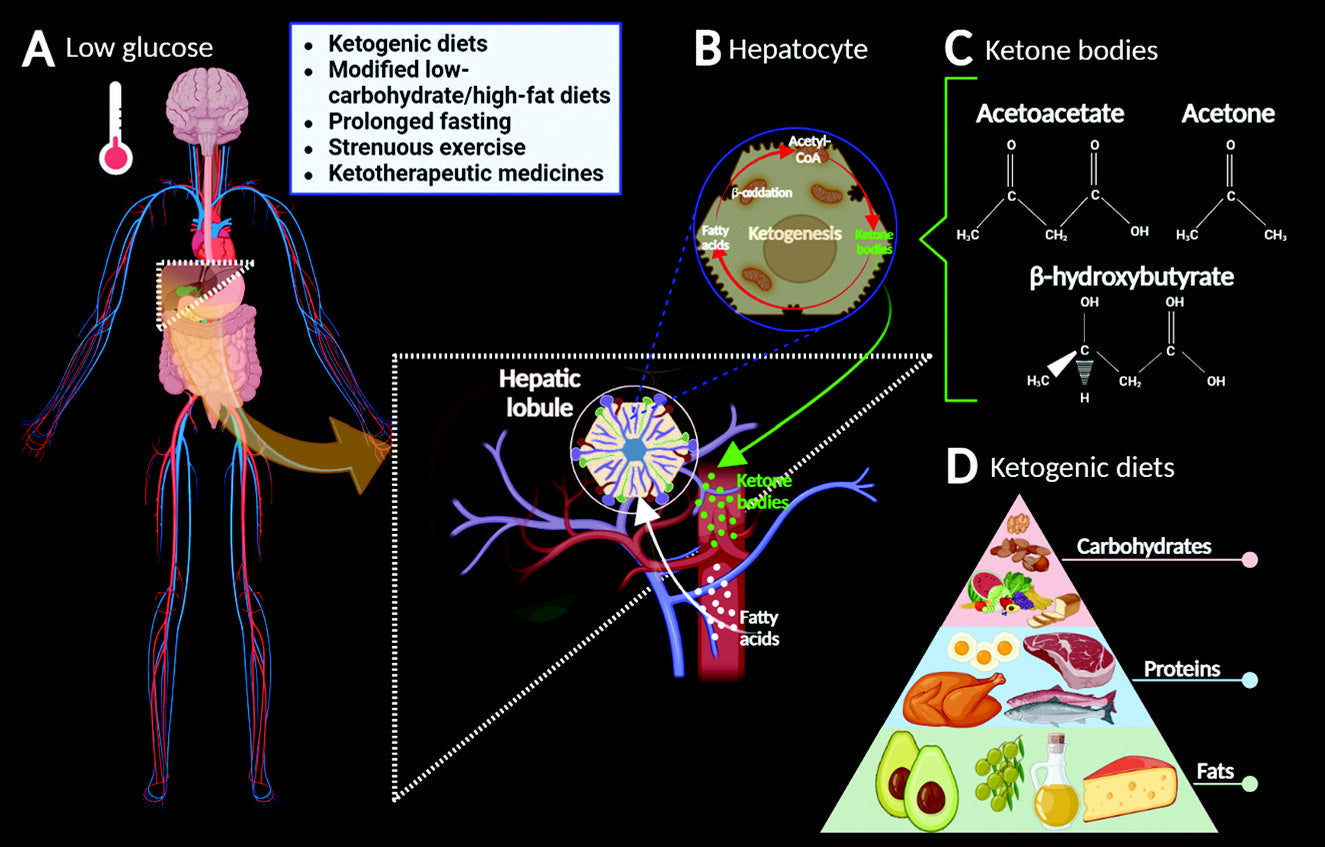What is Metabolic Age and How to Improve it
Aging happens to all of us, but how we age is something we can influence. While your chronological age reflects how many birthdays you’ve had, your metabolic age gives insight into how well your body is actually functioning. It’s a smarter way to understand your health from the inside out.
In this guide, we’ll break down what metabolic age really means, how it impacts your wellbeing and what you can do to improve it. From science-backed lifestyle changes to innovative daily support like Qitone™, here’s how to take control of your aging journey and feel your best — at any age.
What’s the Relationship Between Metabolic Age and Health?
Metabolic age compares your basal metabolic rate (BMR): the number of calories your body burns at rest, to the average BMR of people in your chronological age group. If your metabolic age is lower than your actual age, that’s usually a good sign: your body is likely functioning more efficiently, with better muscle-to-fat ratio, cardiovascular health and metabolic flexibility.
A higher metabolic age, on the other hand, can be a signal that your lifestyle or health habits may be accelerating biological wear and tear — often tied to inflammation, sedentary behavior, poor diet or elevated stress.
What is Aging?
Chronological aging is simply the passage of time. But biological or metabolic aging refers to how your cells, tissues, and organs are functioning. It's this internal aging, affected by everything from stress to diet to exercise, that determines how youthful (or not) you feel and perform.
What is Metabolic Age?
Metabolic age reflects the functional status of your metabolism, not just your calendar age. It’s influenced by your body composition, activity levels, and how efficiently your body produces and uses energy. For example, someone with a high lean muscle mass, good cardiovascular fitness and stable blood sugar might have a metabolic age 10 years younger than their chronological age.
How is Metabolic Age Different From Chronological Age?
While your chronological age marches on, your metabolic age can move in either direction, forward or backward, depending on your health behaviors. It’s a more dynamic and a personalized reflection of how well your body is managing energy and recovering from daily stressors.
How is Metabolic Age Measured?
Metabolic age is often estimated using body composition scans (like bioelectrical impedance analysis or DEXA) that assess:
- Basal metabolic rate (BMR)
- Lean muscle mass vs. fat mass
- Visceral fat levels
- Cellular hydration
These biomarkers are then compared to population norms to generate your “metabolic age.” It’s not a perfect metric, but it offers a useful snapshot for tracking progress and lifestyle changes.
What Risk Factors Increase Metabolic Age?
Certain lifestyle and physiological factors are linked to a higher metabolic age:
- Sedentary lifestyle
- Poor diet low in micronutrients
- Chronic stress
- High blood pressure or cholesterol
- Elevated blood glucose or insulin resistance
- Sleep disturbances
- Inflammation and oxidative stress
All of these can accelerate cellular aging, reduce metabolic efficiency and lead to a higher metabolic age.
How to Improve Your Metabolic Age
The good news? Metabolic age can be improved to help you age healthily. Here's how to do it with evidence-backed strategies:
Keep an eye on these markers
Maintaining healthy weight, blood pressure, cholesterol and blood sugar levels plays a key role in slowing metabolic aging. Studies show these markers are tied to reduced epigenetic aging — that is, slower changes to your DNA that signal biological wear and tear.
Eat polyphenol-rich foods
Polyphenols are powerful plant compounds found in berries, green tea, dark chocolate and colorful vegetables which help regulate inflammation and may modify epigenetic markers involved in aging. Diets rich in polyphenols are associated with slower aging and better metabolic function.
Stay active
Exercise is one of the most powerful anti-aging tools available. Physical activity slows biological aging by improving insulin sensitivity, enhancing mitochondrial function, and increasing lean muscle mass. Studies show exercise can even reverse biological age markers through favorable DNA methylation changes.
Manage stress with meditation
Chronic stress can accelerate biological aging. Practices like meditation and mindfulness have been linked to reductions in stress hormone levels, slower epigenetic aging and improved metabolic balance. Incorporating regular stress-reducing habits can be just as important as diet or exercise.
Qitone™: The Smart Addition to Your Metabolic Health Routine
One innovative way to support a youthful metabolic age? The answer is Qitone.
Qitone™ is a revolutionary pro-ketone powder that delivers clean energy to your brain, heart, and metabolism—without requiring dietary changes.
Clinical studies show that the active ingredient in Qitone™, bis-octanoyl (R)-1,3-butanediol (BO-BD), increases blood levels of beta-hydroxybutyrate (BHB) — a ketone body known for its ability to enhance mitochondrial function, improve insulin sensitivity and support brain health. Qitone doesn’t just power cells, it acts as a signaling molecule that may help regulate inflammation, reduce oxidative stress and promote longevity at the cellular level.
In one study, BO-BD delivered rapid, sustained elevations in ketones, reaching ketosis in under 30 minutes, with effects lasting throughout the day. This positions Qitone™ as a compelling addition to your toolkit for maintaining metabolic flexibility and a more youthful internal age.
Your metabolic age isn’t set in stone. With the right strategies—nutrition, movement, stress management, and smart supplementation—you can take control of your metabolic health and age on your terms.





Leave a comment
This site is protected by hCaptcha and the hCaptcha Privacy Policy and Terms of Service apply.